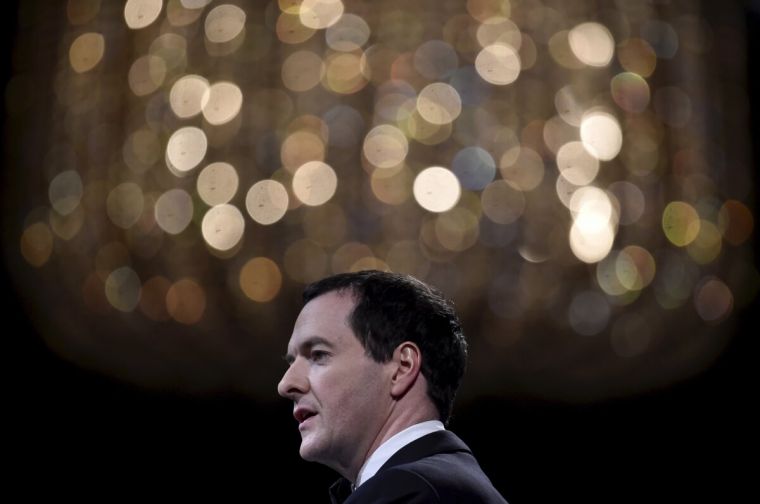To cut or not to cut? Key questions to ask ahead of spending review
On Wednesday the Chancellor George Osborne will announce his spending review which lays out how the government will spend its roughly £1trillion income for the next four years.
The Conservative government have repeated their intention to move from a low wage, high tax, high welfare society to a high wage, low tax, low welfare society. This will mean the government will cut its expenditure, do less and look to society as a whole and churches and communities in particular to pick up the burden.
But what does this actually mean? Who will be affected by this change? Who will face hardship as a result and what should we be cautious of or stand against?
Ahead of Wednesday's action, I've taken a look at what can be expected and what Christians should look out for when Osborne gets to his feet in the House of Commons.

Tax Credits:
Although Osborne has insisted he will plough on with his proposed changes to tax credits, he has promised to lay out how he will compensate families set to lose out.
Following a debate in the House of Lords where several bishops spoke against the proposals, the Lords voted to delay the implementation of the cuts until the a scheme has been produced for "full transitional protection" for those affected.
So watch out for what sort of transitional protection Osborne will offer. The key questions to ask will be:
- whether the scheme actually does protect families from significant loss;
- where the cash-strapped Chancellor will find the money to offer such compensation. The Guardian suggests the money will be found by taking away housing benefit from many of the same people, but we will only know for certain by Wednesday afternoon;
- who will be protected. Will Osborne's scheme protect everyone set to lose out (3.2 million people) or only the worst affected?
Several Christian charities have campaigned against the changes with one public policy charity, CARE, saying "many families affected will not even have enough income to provide a minimum acceptable standard of living."
Peace and security:
The recent ISIS terrorist attack in Paris has brought the focus on our security system and how to best ensure peace and stability in the UK.
Expectations in Westminster are that cuts of around 20 per cent will be made to the police force, although this hasn't been confirmed. Savings of this scale could "reduce very significantly" the country's ability to cope with a Paris-style attack, according to some senior police officers. According to unofficial estimates in the Guardian, at least 22,000 police jobs could be lost.
However David Cameron has promised an extra 1,900 security and intelligence staff at MI5, MI7 and GCHQ.
So the key points to consider will be:
- how much will be cut from the police and how many job losses this will result in;
- whether the additional spending on security will sufficiently mitigate the loss of police numbers.
Access to justice:
Over the last five years spending on the justice system was slashed by £2.1bn and the plan to cut legal aid as well as the closure of 91 courts and tribunals was heavily criticised.
Further significant savings are expected on Wednesday which Justice Secretary Michael Gove hopes to make by reducing re-offending rates leading to fewer people in prison.
Caring for ex-offenders are among a number of other Christian charities helping people coming out of prison to rehabilitate into society and Andrew Selous MP, minister for prisons, is a practising Christian.
However the key questions to ask will be whether reducing re-offending rates is enough to make the savings demanded:
- is reducing the rate of re-offending a realistic means of cutting as much as Osborne will demand?;
- will other areas of access to justice be cut as well and will this make it harder for the low-paid to receive justice and representation in courts?
- will there be further court closures making it harder to prosecute and bring to justice those who have committed crimes?
Fund to eradicate malaria:
International Development has a protected budget so will maintain its current allocation of 0.7 per cent of GDP.
On Wednesday the Chancellor is expected to announce a £1bn fund aimed at eradicating malaria and other infectious diseases. Named after British Nobel Prize winner Sir Ronald Ross, The Ross Fund will be run in partnership with Bill and Melinda Gates.
One child every minute dies from malaria in Africa and Christians have long been at the centre of a campaign to end the disease which remains the world's biggest killer.
£115m is allocated for research into new drugs for malaria, TB and other infectious diseases. A further £188m will be spent on improving defence and response systems to epidemics such as Ebola.











